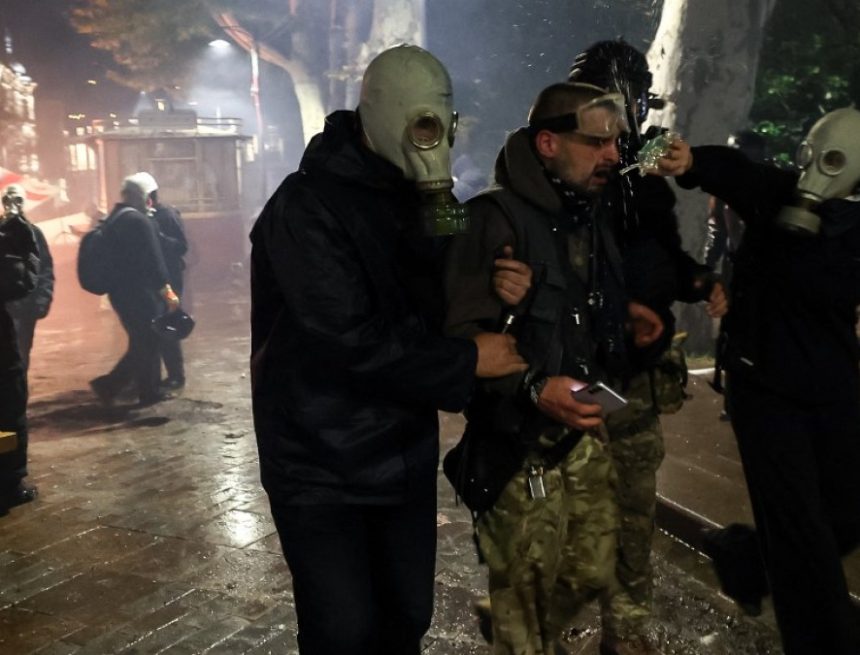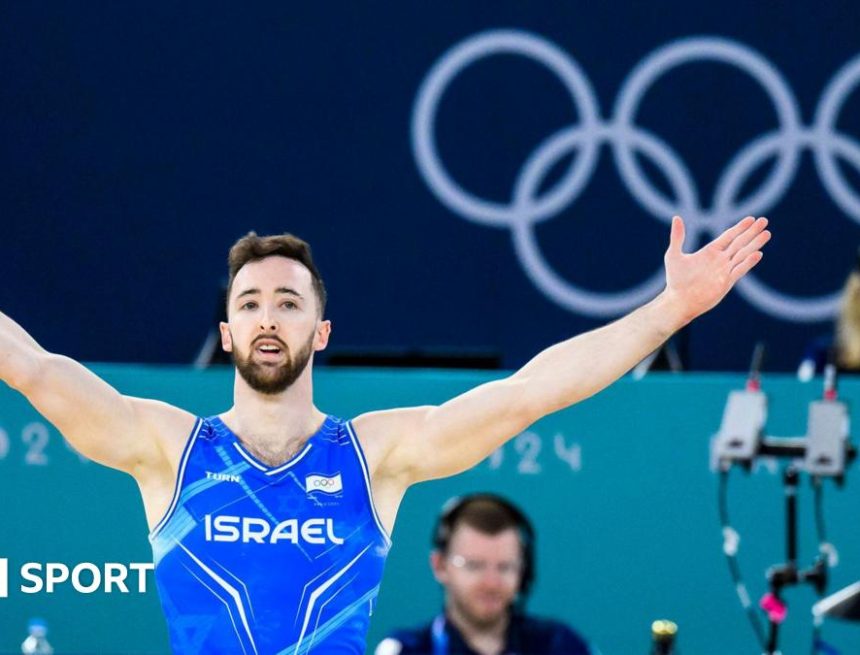‘Faithfuls, you are breaking my heart,” an exasperated Claudia Winkleman told the players at the sixth round table of this year’s BBC Celebrity Traitors. “You are not getting it, what are you not seeing? You have to open your eyes – please.”
Winkleman is hardly a shrinking violet at the best of times, but in this case, her theatrics were justified. The episode in question – which saw poor, diehard Faithful Mark Bonnar banished from the castle after a dramatic deadlocked vote – marked the moment Celebrity Traitors officially produced the worst-performing group of Faithfuls in British Traitors’ history.
Until this season, the latest a Traitor had ever been caught was episode six, in the first series, when Alyssa was exposed by her fellow Traitor Amanda. And back then, they all had the excuse that the game was new. This lot has had three seasons of examples, playbooks, and round tables to study, and they’re still floundering.
Of course, they’re not totally useless – they did finally manage to weed out Jonathan Ross last week, seven episodes in, but then immediately counterbalanced it by banishing another Faithful (Kate Garraway) the following day.
So, why are this year’s Faithfuls so utterly shambolic? As a veteran of the game (I was one of the Traitors on season two, before being backstabbed by my own teammate, Harry, just before the finish line), allow me to posit a few ideas.
She might have been voted most useless player by her fellow contestants, but it was our dearly departed Kate who actually summed it up best, in the latest episode. “You get bedazzled by the great personalities around you,” she said, “which makes your head spin.”
Indeed, the Faithfuls are suffering from a potentially fatal case of celebrity goggles. Instead of getting down to the brass tacks and analysing people’s behaviour, they are analysing personas, allowing their votes to be swayed by preconceived notions of who their fellow contestants are.
Which is why Alan Carr is able to giggle his way through every round table, sweat through his shirt, forget he has a shield, and everyone swats it away with a proverbial, “Oh, that’s just Alan!” He’s so funny and lovable that he’s getting away with murder – literally.
It is also why much of the justification for Stephen Fry being unceremoniously banished was the repeated idea that he’s a “genius” and a “big dog”, so would make a good Traitor. Not once, though, did Stephen ever exhibit even the slightest hint of perfidy.
The same could be said for Niko Omilana, who was the first to be banished from the castle, largely based on the fact that he’s a prankster by trade. The Faithfuls are not looking at what people are doing; they’re looking at who they are.
Another glaring issue is that the Faithfuls aren’t working together. Ultimately, Traitors is a team sport, which means that every Faithful needs allies, not just good instincts.
This celebrity cast, though, seems allergic to forming cliques. Faithfuls win when they trust each other and when they share information. Take Nick Mohammed. He’s clearly clever and perceptive, but for a while, he fell into the classic trap of thinking that being right is enough. You can have all the correct theories in the world, but if you can’t convince the group to vote your way, you lose. Once he decided to bring Joe Marler on side, the momentum started to shift, but it may be too little, too late.
That’s exactly what happened to Jaz on my season – he clocked both me and Harry as Traitors, but he didn’t build strong enough relationships to make his vote count. You can’t just play the game in your head; you have to play it in the room.
And then there’s the money – or rather, the lack of it. In the civilian version, people come into the castle with raw hunger. You want to win because that pot of money could change your life. I went in wanting to buy a house. Others wanted to pay off debts or support their families. It hurts when you’re banished or betrayed because there’s that extra layer of personal grief of losing a life-changing amount of money that comes with walking out of the castle.
after newsletter promotion
When you’re playing for charity, it’s lovely in principle, but perhaps it dulls the edge a little. If you told these celebrities their careers were on the line instead of a cheque for charity, the castle would be chaos.
The Faithfuls might have made some glaring errors, but we should also give some well-deserved credit to this year’s Traitors. Cat Burns, in particular, has played a blinder by lying low and stabbing Jonathan in the back at the perfect juncture. Alan, by his own admission, has taken the opposite tack and “pole vaulted” over the radar, but still has not managed to catch much heat.
But Jonathan has been my favourite by far. From the very start, when he told Alan to say a few words at Paloma Faith’s funeral (knowing full well Alan had murdered her in cold blood), he has been the pantomime villain of the piece. He’s the kind of Traitor I love to watch, pushing the game forward and stirring things up.
I’m probably biased, because I see a lot of myself in him – the devious Traitor who somehow manages to get away with it, despite being so blindingly obvious. When I was a Traitor, I also wanted to be machiavellian and perform. Like Jonathan, I’d get called out again and again and still somehow survive the round table.
For all my moaning, you can’t quite count out the Faithfuls just yet. As it stands, Joe and Nick are finally on to Alan and Cat, so the tide might just be turning in the Faithfuls’ favour. There’s still plenty of time for the Traitors to snatch defeat from the jaws of victory.


